Global warming is the increase in the temperature of the earth in one decade. Globally, climate change has become the main political agenda. People are seeking the answer to the questions like what’s global warming? Or what global warming effects? And what are the causes of global warming? World policymakers are seeking information from scientists and experts regarding the causes and solutions of global warming.
History of Global Warming
There are a lot of essays on global warming available on the internet but first thing is to know the difference between climate change and global warming. These terms are sometimes considered as same but these are different. Climate may be defined as the average weather during a specific period we can consider summer as dry or wet. Any change in the routine climate will be termed as climate. It may be extreme weather winter or summer.
The last decade of the previous century was an alarming indicator for scientists regarding climate change. The main point to find an answer for the question is this climate change due to human activities? Here is the list of Hurricanes, floods and storms which hit the different areas of the world in the 1990s:
- Hurricane Gilbert struck Mexico
- Hurricane Andrew hit Florida
- 250000 people drowned in Bangladesh
- The storm hit India in 1999
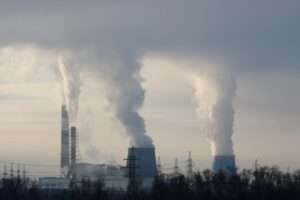
Sea water temperature is increasing at the surface level day by day which acts as a barrier for the transport of nutrients from air to lower levels of oceans which causes the risk to aquaculture. This increase in temperature also disturbed the rainfall patterns.
When volcanoes erupted, they spread a huge amount of gas and dust into the environment. Among dust, sulphur is the main component which is then converted into sulphuric acid when reacting with the sun’s heat and trapped in the stratosphere (upper layer of the atmosphere which is 10 km height from the earth’s surface). This sulphuric acid for the time being come in contact with the rainwater and causes acid rain. One can easily find the dangerous level of acid rain from the fact that in 1991 Philippine volcano spread 20 million tonnes of sulphur dioxide into the atmosphere.
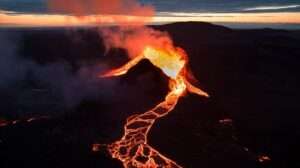
Effect of human activities on climate
Most kinds of human activities like running industries on fossil fuels, deforestation, and transport emission of gases especially carbon dioxide have the main effects on climate change. Carbon dioxide has more capacity to absorb heat from the sun and acts as a blanket over the earth’s surface and resulting in an increase in the temperature of the earth. Owing to the high-temperature atmosphere is more humid which also does not allow the earth to lose heat. Global warming is not only a danger for human beings but also devastating to our ecosystem.

Green House effect and gases
Sun’s radiation falls on earth and hence earth’s heat radiate back out of the atmosphere. This should be kept in balance. But if for some reason the earth cannot radiate heat back out of the atmosphere, it will trap and hence will increase the earth’s temperature. It is called the natural greenhouse effect. The main heat absorber in the atmosphere is water vapours but these are not changing due to human activities. The greenhouse gases which are being increased due to human activities are carbon dioxide, chlorofluorocarbons CFCs, ozone and methane.
- Carbon dioxide
As humans revolutionized their industry, consumption of non-renewable energy resources has increased many times than before industry. The burning of oil, coal and gas resulted in increased carbon dioxide emissions to the environment.
- Methane
Natural gas is mainly comprised of methane and this gas is not high in the atmosphere as carbon dioxide is but the greenhouse effect of methane is eight-time higher than Co2.
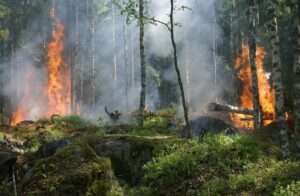
- Nitrous Oxide
Nitrous oxide is commonly used for anaesthesia purposes. Although its quantity in the atmosphere is not so high its increase due to human industrialization is huge and it has enormous greenhouse effects.
- Chlorofluorocarbons (CFCs) and ozone
CFC is emitted from refrigerators and air conditioners and it is artificially made by humans but when it is released into the environment it remains about a hundred years before gets destroyed. The main effect of CFC is the depletion of the ozone layer around the atmosphere which protect the harmful radiation coming from the sun to earth.
Future Projections of Global warming
Previous research projected a rise of 0.6C up to 2000. The projection was before the boom of industry. But now the latest research and model project the rise of 2 to 6C up to 2100. This change looks very small as it lies under little fraction but in reality, if we see the average global temperature rise and compare it with history, this change is far more than the previous 10000 years record.
Consequences of global warming
Scientists have compiled the data from the research and forecasted the future impacts of climate change due to global warming.
- Impact on rising sea level
A common hypothesis is that with the increase in temperature, glaciers and Antarctic ice meltdown results in the rise in the sea level. This hypothesis to some extent is true but does not has a very high impact on sea-level rise. But another main factor is the rise of ocean temperature due to which water expands and causes a significant rise. This rise is not dangerous for the countries which are above sea level but alarmingly dangerous for those countries which are quite below sea level like Bangladesh. These countries can experience floods very commonly.
- Increased consumption of fresh water
There will be more evaporation from freshwater reservoirs streams and canals due to high temperature and summer will be experience drier. This effect will hurt rainfall also. So to compensate for the needs of human beings, groundwater is being used as an alternative and its resources are depleting day by day.
- Impact on Ecosystem
Most of the land area on the earth is not managed by humans. This area consists of forests and a lot of creatures reside there which are interconnected with each other in an ecosystem. Due to extreme weather, multiple factors of the ecosystem are disturbed which results in the fallout of the ecosystem. Many animal species are being extinct without human help. One reason for ecosystem disturbance is deforestation also. Extreme weathers ignite wild fires which not only burn trees but also expelled wildlife from the forest.
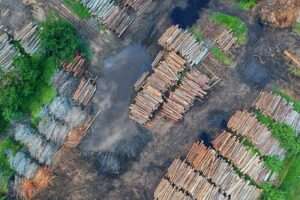
- Impact on Human Health
Humans depend upon the best and most healthy environment. Climate change factors lead to pollution and deteriorate human health. Due to prolonged drought, the quality of food is also disturbed. The direct impact of climate change on humans is heat stress. A lot of causalities are reported in urban areas, incredibly densely populated areas.
The solution to slow the global warming
There are two types of strategies which could be adopted to halt global warming.
- Short term actions
- Long term actions
Stabilizing the greenhouse gas emissions
This action is for developed countries which can reduce the emissions of greenhouse gases by taking immediate steps. They can reduce the Co2 emissions by switching their industry from consuming coal and oil to natural gas which generates 40% less Co2 than coal and oil. The emission of CFC also should be minimised by taking immediate action which is dangerous for ozone layer depletion.
Aforestation
During the 20th century, forests were removed and trees were cut at a very high pace. Deforestation increased to full fill the hardwood requirement from developed countries and the secondary purpose was to cope with the fuel requirement. Due to the increasing population, forests are also being cut to make land for residence. But this deforestation resulted in increased greenhouse gases. Reduction in deforestation will have a substantial role in the slowdown of greenhouse gases emission.
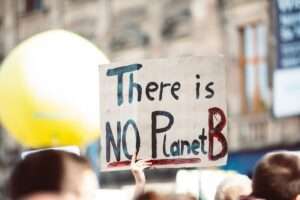
Reduction in the sources of methane
The lifespan of methane in the environment is much lower than Co2 but it has a significant role in global warming. If we make cuts in the emissions of methane to the environment it will slow down the speed of global warming. There are 3 main sources of methane emission.
First, the burning of biomass is the main source of methane emissions. If we stop deforestation, there would be the main reduction in methane emissions. The second source is the usage of landfill methane as fuel in the industry. If we replace waste incineration as a fuel source instead of methane, it would also reduce greenhouse gas emissions in the atmosphere. The third source is the leakage from the gas pipeline that is supplied between the countries. We should take steps to reduce the leakage from these lines.
Let us know below in the comment box what measures you are taking individually to curtail the sources of global warming and how many trees you have planted until now?
To read more interesting articles visit Expert opinionz.







